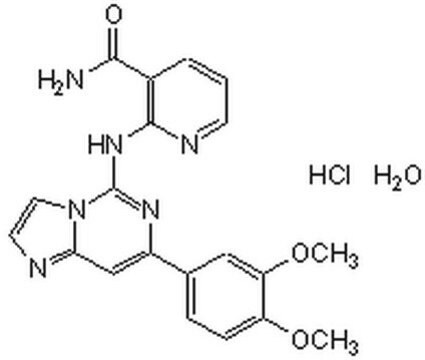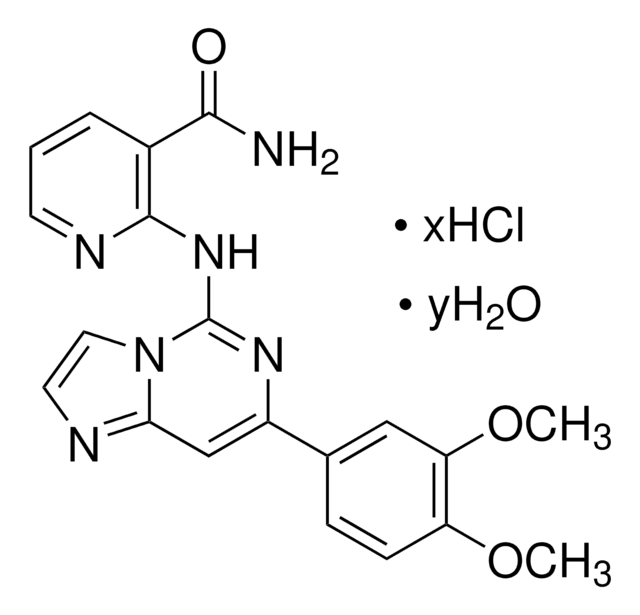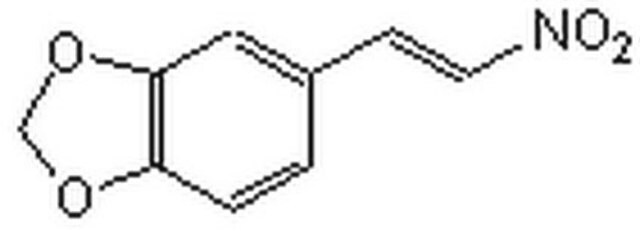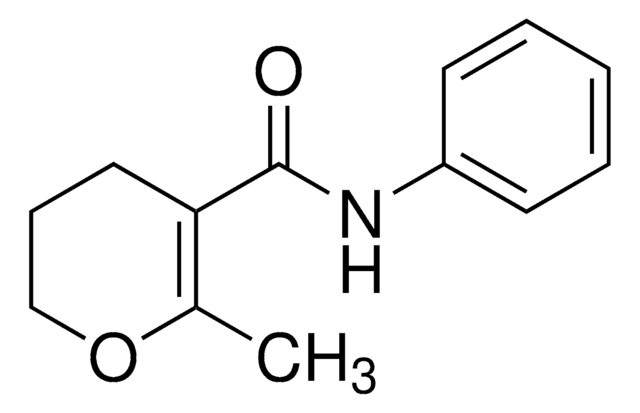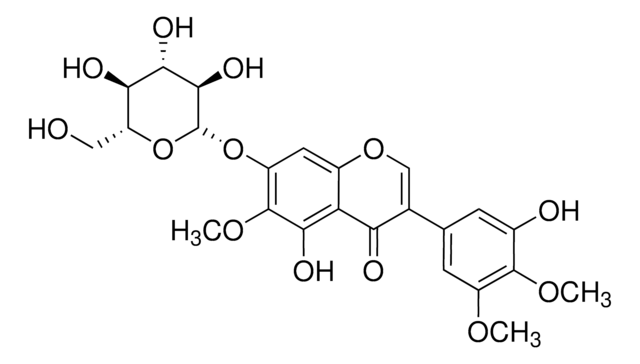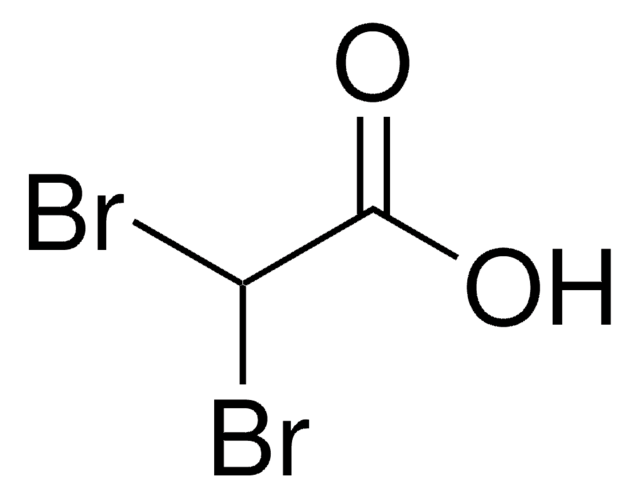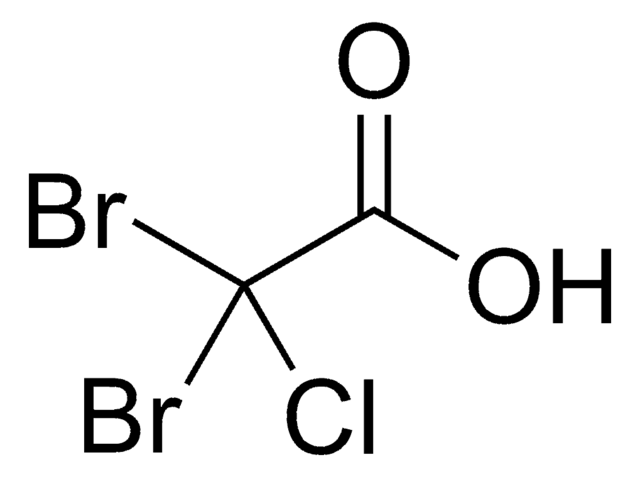574711
Syk Inhibitor
The Spleen Tyrosine Kinase Inhibitor, also referenced under CAS 622387-85-3, controls the biological activity of Spleen Tyrosine Kinase. This small molecule/inhibitor is primarily used for Phosphorylation & Dephosphorylation applications.
Synonym(e):
Syk Inhibitor, Spleen Tyrosine Kinase Inhibitor, 3-(1-Methyl-1H-indol-3-yl-methylene)-2-oxo-2,3-dihydro-1H-indole-5-sulfonamide
About This Item
Empfohlene Produkte
Qualitätsniveau
Assay
≥97% (sum of two isomers, HPLC)
Form
solid
Wirksamkeit
14 nM IC50
Hersteller/Markenname
Calbiochem®
Lagerbedingungen
OK to freeze
protect from light
Farbe
deep orange
Löslichkeit
DMSO: 5 mg/mL
Versandbedingung
ambient
Lagertemp.
2-8°C
InChI
1S/C18H15N3O3S/c1-21-10-11(13-4-2-3-5-17(13)21)8-15-14-9-12(25(19,23)24)6-7-16(14)20-18(15)22/h2-10H,1H3,(H,20,22)(H2,19,23,24)
InChIKey
MLKHXLFEYOOYEY-UHFFFAOYSA-N
Allgemeine Beschreibung
Biochem./physiol. Wirkung
Verpackung
Warnhinweis
Sonstige Hinweise
Rechtliche Hinweise
Lagerklassenschlüssel
11 - Combustible Solids
WGK
WGK 1
Flammpunkt (°F)
Not applicable
Flammpunkt (°C)
Not applicable
Analysenzertifikate (COA)
Suchen Sie nach Analysenzertifikate (COA), indem Sie die Lot-/Chargennummer des Produkts eingeben. Lot- und Chargennummern sind auf dem Produktetikett hinter den Wörtern ‘Lot’ oder ‘Batch’ (Lot oder Charge) zu finden.
Besitzen Sie dieses Produkt bereits?
In der Dokumentenbibliothek finden Sie die Dokumentation zu den Produkten, die Sie kürzlich erworben haben.
Unser Team von Wissenschaftlern verfügt über Erfahrung in allen Forschungsbereichen einschließlich Life Science, Materialwissenschaften, chemischer Synthese, Chromatographie, Analytik und vielen mehr..
Setzen Sie sich mit dem technischen Dienst in Verbindung.